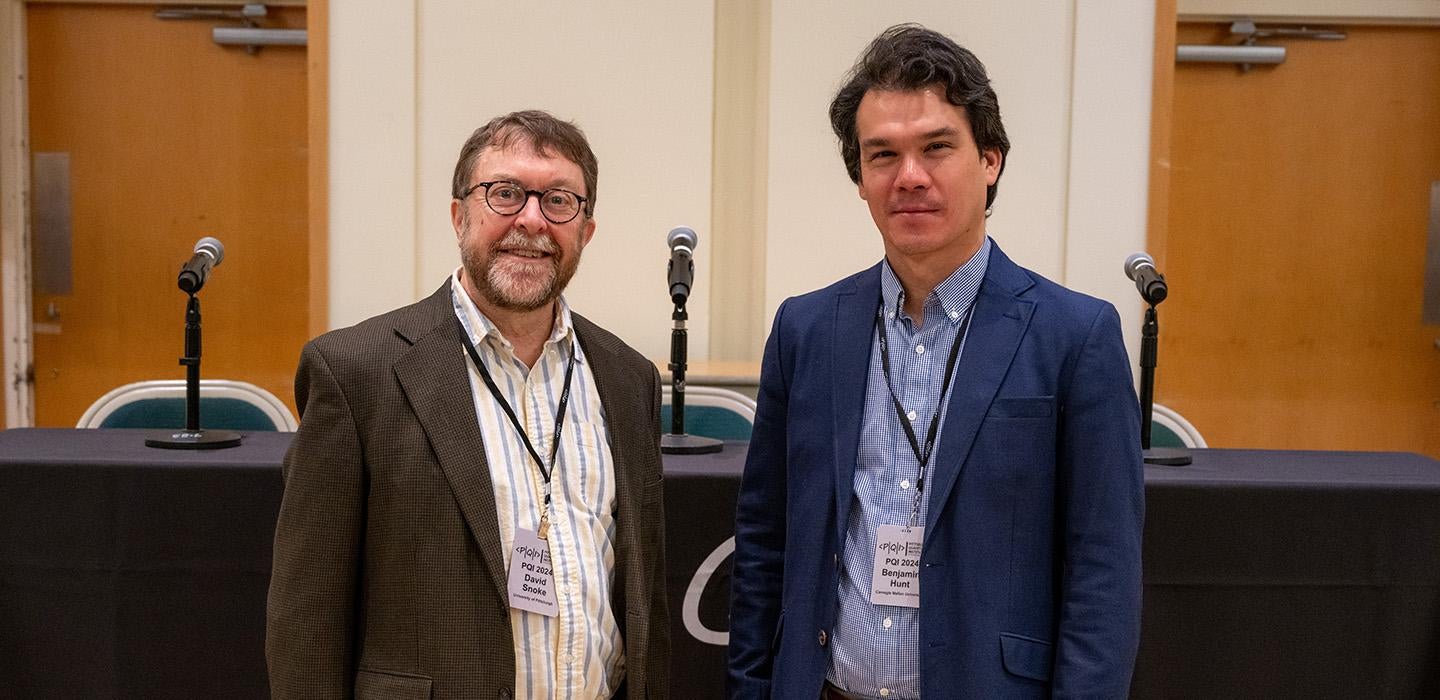
Subscribe to Pittwire Today
Get the most interesting and important stories from the University of Pittsburgh.David Snoke, distinguished professor in the Department of Physics and Astronomy at Pitt’s Kenneth P. Dietrich School of Arts and Sciences, has been named the new co-director of the Pittsburgh Quantum Institute (PQI). Led collaboratively by the University of Pittsburgh, Carnegie Mellon University and Duquesne University, PQI was founded in 2012 to help unify and promote quantum science and engineering in Pittsburgh.
Snoke will lead PQI alongside fellow co-director Benjamin Hunt, associate professor in the Department of Physics at Carnegie Mellon University and specialist in experimental condensed matter physics.
“As co-director for PQI, I look forward to working with David to continue the collaborations between our institutions,” said Hunt. “There have been huge advances in quantum science in the last decade, and I believe David can help us continue to pursue even more in the coming years.”
Snoke’s research focuses on optical methods to study fundamental questions of quantum mechanics in semiconductor systems. His lab has two main emphases — spontaneous coherence of photons with special properties (known as “polaritons”) and nonlinear optics in semiconductor nanostructures.
“David Snoke’s work has set himself apart as a quantum scientist,” said Rob Cunningham, executive director of PQI. “His groundbreaking work, his decades of experience at Pitt and collaborations with CMU, will help him lead the organization and strengthen our position as a leader in quantum research.”
In 1989, he was the first to perform simulations of the path toward equilibrium of a Bose-Einstein condensate — a state of matter in which quantum wave phenomena become macroscopically apparent. Less than 20 years later, collaborating with the group of Loren Pfeiffer of Princeton University, his group was the first to demonstrate Bose-Einstein condensation of polaritons in a holding container. Until that point, polariton condensates were always observed in a freely expanding state. In 2017, a collaborative experiment with Keith Nelson’s group at the Massachusetts Institute of Technology led to the first observation of a polariton condensate in equilibrium.
“There used to be a belief in this field that polariton condensates of light can only exist out of equilibrium in a highly chaotic state,” said Snoke. “Over the last 10 years or so, we’ve developed structures that give these photons a long lifetime — enough to reach equilibrium.”
With years of experience in experiments using quantum mechanics, Snoke has helped lay the foundation for PQI to be a leading collaborative interdisciplinary organization that advances research, education and training in quantum science and engineering. As co-director, he will continue to push the field forward alongside Hunt.
“I am honored to be named the co-director of the Pittsburgh Quantum Institute,” said Snoke. “I look forward to working with the faculty, staff and students to enhance our understanding of quantum science and drive a new era of discovery.”
— Annaliese Daniels, photography by Jonah Bayer/Carnegie Mellon


